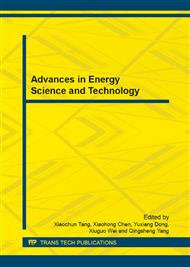p.2874
p.2878
p.2885
p.2889
p.2895
p.2899
p.2905
p.2909
p.2913
A Novel Reliability-Driven Heuristic for Grid Task Scheduling
Abstract:
Under dynamic, unreliable grid environment, a novel heuristic based on average reliability of task is proposed, which task into account the failure condition and dynamic workload of Grid. On the basis of the heuristic strategy proposed, this paper improved two classic scheduling algorithms, Min-min and Sufferage, to improve execution reliability of grid task. Moreover, a new greedy algorithm, GR, is proposed in the paper. The simulation experimental results indicate that the algorithms based on the average reliability heuristic are better than Min-min and Sufferage in terms of task completion ratio by 10%, which can guarantee the user's deadline efficiently.
Info:
Periodical:
Pages:
2895-2898
Citation:
Online since:
February 2013
Authors:
Keywords:
Price:
Сopyright:
© 2013 Trans Tech Publications Ltd. All Rights Reserved
Share:
Citation:


